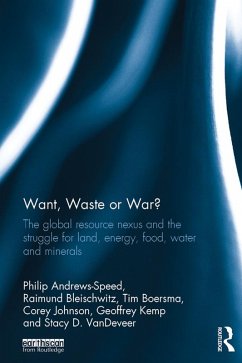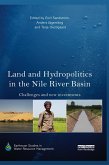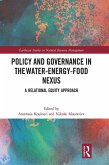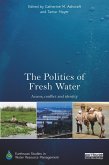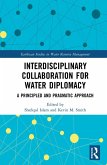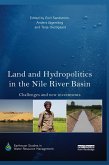In addition to environmental change, the structure and trends of global politics and the economy are also changing as more countries join the ranks of the world's largest economies with their resource-intensive patterns. The nexus approach, conceptualized as attention to resource connections and their governance ramifications, calls attention to the sustainability of contemporary consumer resource use, lifestyles and supply chains. This book sets out an analytical framework for understanding these nexus issues and the related governance challenges and opportunities. It sheds light on the resource nexus in three realms: markets, interstate relations and local human security. These three realms are the organizing principle of three chapters, before the analysis turns to crosscutting case studies including shale gas, migration, lifestyle changes and resource efficiency, nitrogen fertilizer and food systems, water and the Nile Basin, climate change and security and defense spending. The key issues revolve around competition and conflict over finite natural resources. The authors highlight opportunities to improve both the understanding of nexus challenges and their governance. They critically discuss a global governance approach versus polycentric and multilevel approaches and the lack of those dimensions in many theories of international relations.
Dieser Download kann aus rechtlichen Gründen nur mit Rechnungsadresse in A, B, BG, CY, CZ, D, DK, EW, E, FIN, F, GR, HR, H, IRL, I, LT, L, LR, M, NL, PL, P, R, S, SLO, SK ausgeliefert werden.

